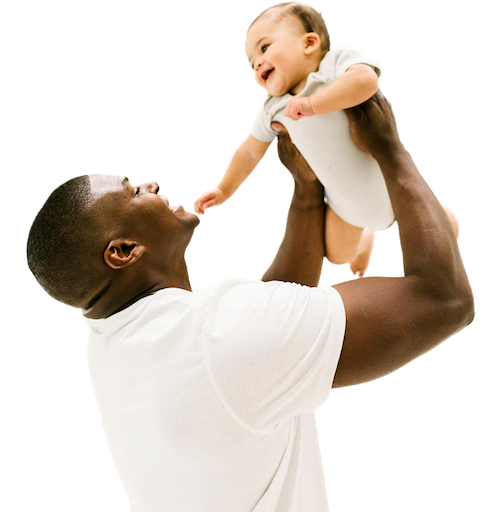If naps are a struggle and you’re wondering if sleep training for naps will help, the short answer is: “Yes… as long as your baby is 5 months or older.” I’m answering all of your questions about nap training, like when to start, how long it takes, why daytime sleep is harder than nights, and more.
Please know, my 5-24 Month Collection and Toddler Sleep Training classes will give you step-by-step plans for how to sleep train for naps and nights, including setting your little one up for nap success, handling every nap transition, troubleshooting tricky days, and more.
If your baby is younger than 5 months, my First Five Months Bundle will teach you strategies to practice with your newborn (0-4 months) in order to work on more restful naps and lay a healthy sleep foundation from the start (Note: this is not formal sleep training.).
What is sleep training?anchor
Sleep training is a way of intentionally teaching your baby or toddler to independently fall asleep and stay asleep for naps and nighttime sleep.
What do I mean by that? Sleep training can help your baby or toddler:
Fall asleep independently: They can be laid down awake and fall asleep without any help (Think: being held, rocked, or fed until they fall asleep).
Take restorative naps: They can sleep for at least an hour for a nap without requiring your assistance.
Sleep through the night: They can sleep 10-12 hours without the need for your help or intervention (Note: this may include a night feeding for some babies until around 9 months).
Expert Tip: I do not recommend sleep training young babies (0-4 months). The goal is to always meet your little one right where they are developmentally, and formal sleep training just isn’t developmentally appropriate in those first several months. However, you can work towards better sleep from the very start.
Can you sleep train for naps?anchor
You can!
For some families, sleep training for naps can be the right choice if:
Naps have always been a struggle.
Naps are consistently short.
Naps suddenly become difficult.
You’re ready for your baby to learn to fall asleep independently for naps.
When your little one is 5 months or older, nap training can help them get the restorative daytime sleep they need when it seems naps just won’t happen.
When should I start sleep training for naps?anchor
I recommend waiting until your baby is at least 5 months old before sleep training, but it's never too late to have a great little napper. Know that most babies do best by learning night sleep first, and many families also find that daytime sleep naturally improves as night sleep solidifies.
If your baby isn’t sleeping well at night or for naps, I can help! The 5–24 Month Collection will teach you everything you need to know to get great sleep for nights, naps, and every bump along the way.
Toddler Tip: Using the same consistent approach to sleep for nap time and bedtime can help you see nap training success faster. Toddlers thrive on predictability and routine. Knowing what to expect for sleep typically makes sleep training a much smoother process.
Should I sleep train naps or nights first?anchor
I typically recommend sleep training for nights first. Just like most babies learn to crawl before they're ready to walk, most babies learn to sleep through the night before they’re ready to consolidate naps.
However, some families may decide to sleep train naps and nights at the same time. That can work well too! You can see sleep success either way, so I’ll always encourage you to do what feels right for your family.
Why are naps harder to sleep train for some babies?anchor
You’re not alone if it seems like naps are harder than nights for your baby or toddler. Let’s talk about some of the reasons why this happens:
Sleep pressure. Sleep pressure during the day is simply not as strong as it is during the night. Following age-appropriate wake windows and getting active awake time can help.
Hormones. During the day, the body's natural sleepy hormone, melatonin, is not as present as it is at night. This is part of how our bodies regulate our circadian rhythm.
Age. Naps only begin to regulate and consolidate for most babies around 5-6 months. If your baby is around this age, know that their body is only beginning to regulate the hormones involved in daytime sleep.
Environment. Daylight can make naps more difficult because light stimulates the brain. I recommend making the room dark (like, dark, dark!) to help your little one fall asleep and stay asleep.
Routine. When it comes to naps and nap training, consistency can make a big difference. Many families have naps on-the-go and a constantly-changing daytime schedule, which can make naps more difficult.
Know that you don’t have to struggle with naps alone. In my classes, I’ll teach you everything you need to help your baby or toddler get solid naps. You’ll have the tools to create a flexible routine that works for your family’s lifestyle and values.
How long does sleep training naps take?anchor
Sleep training for naps may take a few days or a few weeks depending on your baby, your family's lifestyle, and the method you choose. Let me assure you, if you consistently implement the strategies in my classes: By this time next month, your baby or toddler's naps will look completely different in the best way possible. (I guarantee it!)
Sleep Training for Naps FAQanchor
-
You can. Some families find it works best to sleep train for nights and naps together so they can have a consistent approach for both daytime and nighttime sleep. On the other hand, sleep training naps and nights separately can also work well.
-
Yes. Daytime sleep is still so important during the toddler years. I recommend using the same approach for both days and nights with your toddler, as toddlers thrive on predictability and routine. If you need help with naps and your toddler is 2-4 years old, my Toddler Sleep Training class will give you a step-by-step plan. If you have a younger toddler, my 5-24 Month Collection will teach you everything you need for great naps.
-
Yes! While you may not have much control over daycare naps, you can nap train successfully for the naps your child takes at home. Even if daycare sleep isn’t perfect, it’s possible for your baby (5-24 months) or toddler (2-4 years) to be a great little sleeper while they’re with you.
Keep in mind that the information and content on this blog is for informational purposes and should not be considered medical advice. If you have questions about your child, please reach out to your doctor.








